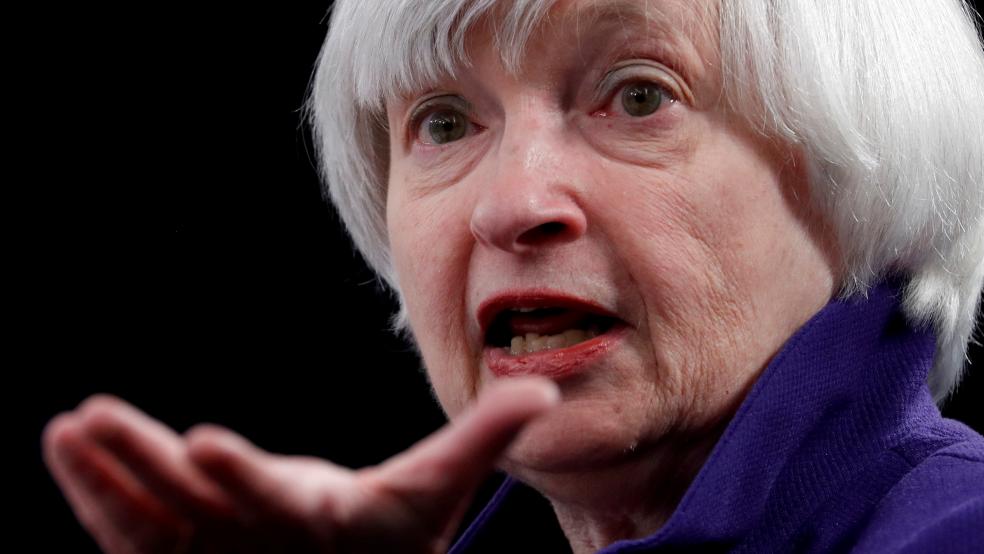Incoming Treasury Secretary Janet Yellen on Tuesday urged Congress to “act big” and deliver more relief to the pandemic-ravaged economy. As she sought to build support for the $1.9 trillion rescue plan unveiled last week by President-elect Joe Biden, the 74-year-old former Federal Reserve chair argued that the risks of inaction far exceed the costs.
“Economists don’t always agree, but I think there is a consensus now: Without further action, we risk a longer, more painful recession now – and long-term scarring of the economy later,” Yellen, 74, told the Senate Finance Committee at her confirmation hearing. “Neither the President-elect, nor I, propose this relief package without an appreciation for the country’s debt burden. But right now, with interest rates at historic lows, the smartest thing we can do is act big.”
Yellen told the Senate panel that she sees spending on vaccinations, aid for small business and help for the unemployed as delivering the “biggest bang for the buck.”
Republican resistance to Biden’s plan: Yellen was met with GOP criticism of Biden’ proposal. Sen. Chuck Grassley (R-IA), the Finance Committee chairman, said the plan was not well-targeted. “With the trillions already in the pipeline, and close to $1 trillion of relief enacted just a few short weeks ago, it is important to focus efforts on pandemic relief,” he said. “Now is not the time to enact a laundry list of liberal structural economic reforms.”
Sen. Pat Toomey (R-PA) said that, while he looks forward to working with Yellen, “the contours of the stimulus bill as proposed by the Biden administration are going to make that difficult.” And Sen. Tim Scott (R-SC) said that Biden’s proposal to raise the minimum wage to $15 an hour would cost jobs.
The fiscally responsible thing to do: Yellen pushed back on GOP criticisms, arguing, for example, that raising the minimum wage would help struggling workers and that economic research indicates that job loss resulting from the higher wage would be minimal.
In response to a question from Sen. John Thune (R-SD), Yellen said she agreed that the long-term fiscal outlook “is a cause for concern,” but she argued that the country would be worse off if it does not act now to address the economic fallout of the pandemic:
“It’s essential that we put the federal budget on a path that’s sustainable and that we’re responsible and make sure that what we do with respect to deficits and debt leave future generations better off, but the most important thing in my view that we can do today to put us on a path of fiscal sustainability is to defeat the pandemic, to provide relief to American people and then to make long-term investments that will help the economy grow and benefit future generations. To avoid doing what we need to do now to address the pandemic and the economic damage that it’s causing would likely leave us in a worse place fiscally and with respect to our debt situation.”
She added that, given low interest rates, the cost of debt service payments as a share of gross domestic product is lower now than it was before the financial crisis in 2008, even as debt has surged dramatically since then. She also said that, while there is a risk that interest rates will rise higher than expected, she believes that low rates will stay in place “for a long time.”
A new consensus on the debt: Debt and deficit questions are bound to hang over Yellen and the incoming Biden administration as it considers spending programs meant to speed economic recovery and restructuring. As The Wall Street Journal’s Kate Davidson and Jon Hilsenrath reported Sunday: “The Biden administration will now contend with progressives who want even more spending, and conservatives who say the government is tempting fate by adding to its swollen balance sheet. Ms. Yellen’s challenge, if confirmed, will be to keep Democrats together and persuade some Republicans to come along.”
But as Davidson and Hilsenrath write, the economic consensus on the debt has flipped in recent years:
“After years of low inflation and interest rates near zero, more economists say the government should be borrowing to keep the economy going because the private sector isn’t. With borrowing costs expected to remain low and the pandemic-stricken economy still weak, temporary increases in deficits aren’t only tolerable but desirable if they help strengthen the recovery, the thinking goes. …
“Unaddressed are the twin questions of whether there is a ceiling on the U.S.’s debt load and how the country will pay it back, concerns heard mostly on the right. ‘At some point we’ll start paying a price for this,’ said Michael Boskin, a Stanford University economist. He served as chairman of the Council of Economic Advisers under President George H.W. Bush in the early 1990s, the last time a Republican administration cut deficits.”
50-year bonds? Asked Tuesday about the idea of the Treasury issuing longer-term debt, including 50-year bonds, Yellen said: “There is an advantage to funding the debt, especially when interest rates are very low, by issuing long-term debt, and I would be very pleased to look at this issue and examine what the market would be like for bonds of this maturity.” The longest-maturity debt issued by the Treasury is now 30 years, and while the government has examined issuing longer-term bonds, the idea was rejected by the Trump administration amid doubts that there would be enough investor demand.
What’s next: Yellen’s nomination could be approved by the Senate as soon as Thursday. Yellen, the first woman to chair the Federal Reserve, would become the first female Treasury secretary and the first person to have led the central bank, Treasury and White House Council of Economic Advisers. But Tuesday’s hearing shows that she and the Biden administration will have a difficult path ahead as they makes their sales pitch for another large coronavirus relief package.





